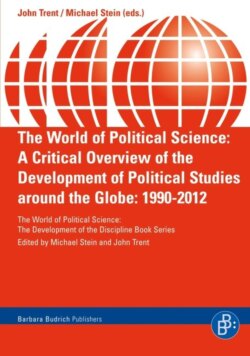Читать книгу The World of Political Science - Группа авторов - Страница 14
На сайте Литреса книга снята с продажи.
3.4. Profiles of Key Political Scientists
ОглавлениеIt is always difficult to list key political scientists in Japan because all are colleagues and friends. The best known political scientist in Japan is Masao Maruyama (Maruyama 1956). He represents the spirit of the first period. He hated the ancien regime. He wanted a new regime to be far more liberal and democratic. He saw the same malaise that attemped the ancien regime being reproduced in the first period. He quit the University of Tokyo in despair when the University was intruded on and destroyed by violent radical students in 1968. The first period was represented by many others whose names are best identified by glancing at the authors’ list of the Nempo seijigaku in the 1950s and 1960s.
The spirit of the second period was represented by the Leviathan-based political scientists comprising Hideo Otake, Michio Muramatsu, Ikuo Kabashima and the author of this chapter. Leviathan is a journal edited by the four founding editors, who were succeeded by the current editorial team in 1998. Its spirit is empiricism and its substantive focus is Japanese politics. No less epoch-making was the multi volume publication of Gendai Seijigaku Sosho (Contemporary Political Science Series) edited by the author of this paper and published by the University of Tokyo Press (1989-present). Along with these journals has come a host of younger political scientists who present and discuss their work in such forums as the Japanese Electoral Studies Association and the American Political Science Association, and publish their work in such journals as the American Political Science Review, the British Journal of Political Science and the Japanese Journal of Political Science. They include: Junko Kato, Steven Reed, Motoshi Suzuki, Yutaka Tsujinaka, Yusaku Horiuchi, Ikuo Kume, Ofer Feldman, Masaru Kohno. Not only does their work appear in English journals, they publish books in English as well.
The spirit of the third period is increasingly comparative. It is not necessarily Japan-focused. It does not necessarily compare Japan with other industrial democracies. As authors are interested in comparative categories such as electoral systems and outcomes, path-dependent policy outcomes, comparative interest groups and comparative life styles. Representative of this third spirit are such works as Kato’s comparative public policy, Tsujinaka’s comparative interest groups, Kobayashi’s comparative civic cultures and the AsiaBarometer survey on values and life styles (Kato 2003; Knoke et al. 1996; Inoguchi et al. 2005, 2006, 2008, 2009; Shin & Inoguchi, 2010; Inoguchi & Fujii, forthcoming in 2012). One of the salient features of the spirit of the third period is the commitment to create and deepen comparative empirical data bases and to engage fellow political scientists abroad as well.
Japanese political science has been changing quickly and with its innate diversity kept intact. The large size of its community ensures its largely segmented existence. Yet as a whole its transformation is very remarkable. In the first period no serious political scientists did empirical work on Japanese politics except for such respected political scientists as Junichi Kyogoku and Ichiro Miyake. In much of the second period those specializing in Japanese politics proliferated. The transition from the first to the second period was fast. The transition from the second to the third period is steady. It is becoming a normal practice to see Japanese political scientists conducting comparative field work and, executing social surveys abroad, and participating in foreign and international academic conventions abroad as well as at home.
